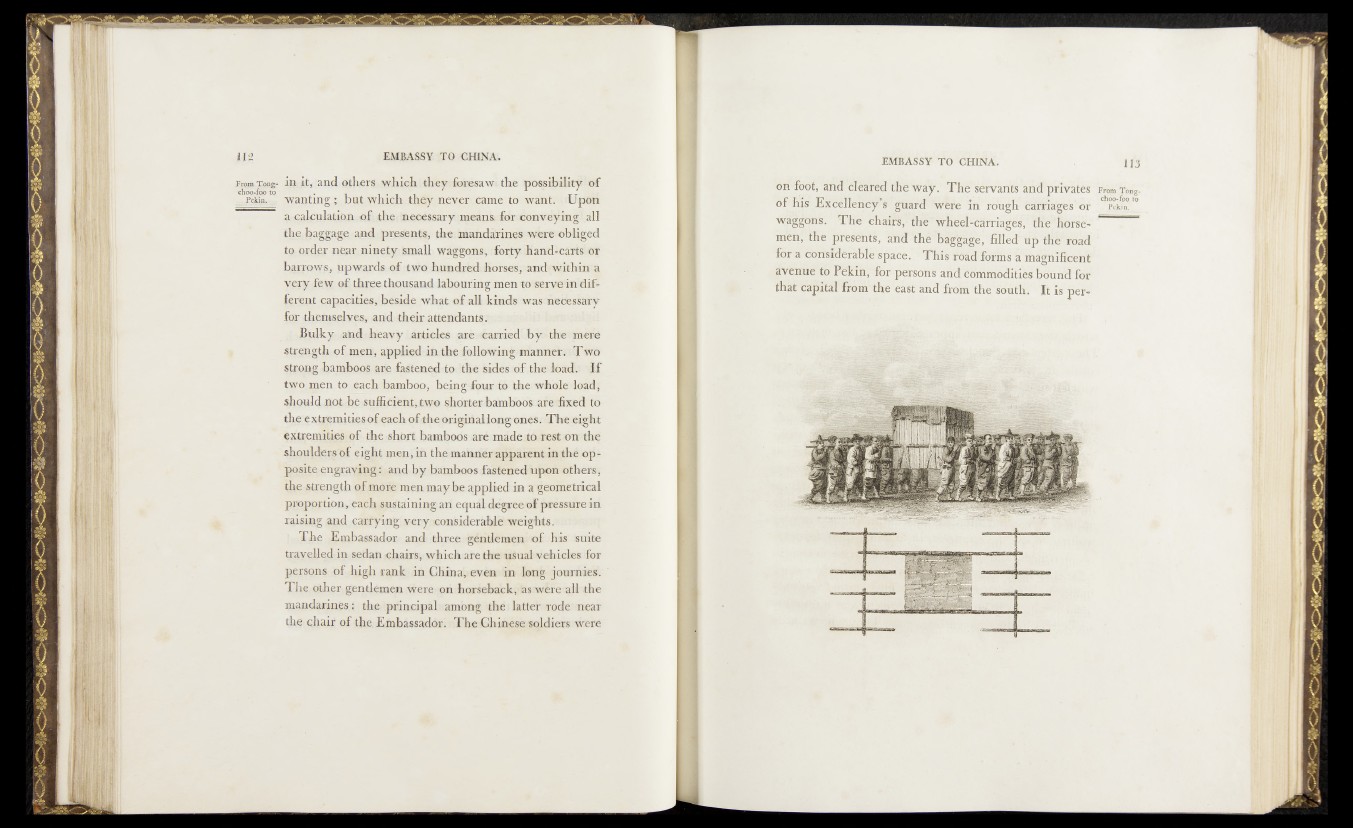
1
in it, and others which,they .fcresa withe possibility of
jjsj^^Kss wanting I but whiçnAheiy never.vcame to want. - sUpon
necessary means for conveyteglpll
the, baggage apd presents, the mandarines were obliged
to peper neaF;ninety small waggons, : forty handioârfô or
b^rrowfo upwards of two hundredthorses, a n dw ith in a
yiffjTjf&Y of three thousand labouring men to -serve in difi
figrunt capacities» beside what o f all kinds was nedesiary
Iff themselves, and their attendants?
Bulky and;heavy articles are carried b y >the mere
strfUgth of men, apphed ih ths:foll©wingfnianner. Two
stçcfflgÉambool arie fastened to the sides of .the load? I f
two. men to eaçlh bamboo, being four to the whole load,
should not l}é>sufficient,two shorter bamlmds afetfixed to
the extremities of each of the original long onnes. The eight
f xt^enrj^^ipfthe short bamboos are made to rest on' the
eight menj in the manner apparent in the op*
P<^it^enpaying4: and by bamboos fastenedupon others,
the strength p f more menmaybe applied in a ^eaæmütriiGal
propnrtion^^ehi^stàining an equal degree of pressure in
raising and cajrtyingLvery considerableweights.
I The .Embassador and three, géritiemen o f his suite
ferayeB®4tn sedan chairs, which are the ninalsvehicles for
person* of high rank in China? even in long joumies.
The, Other, gentlemen were on horseback, as ware all the
mandarines :' the principal among the latter rode near
the chair of the Ambassador: TbeiGhincse soldiers were
on'foot, add cleared the way. The servants and privates From Tong-
Excellency’s 'guard ’were in'totigli carriages or chpek^^
waggons. The champ? the" wheel-carriages, the "horse-
men, 'thefJffeMM, arid the;%^gfge, fillijPup the road
for a considerable'spalfe. This road forms ^ ’magnificent
avenue to Pekin, fir-persons and%8mmddities bdimd for
that capital ffom1 the’east and from the south. It is per